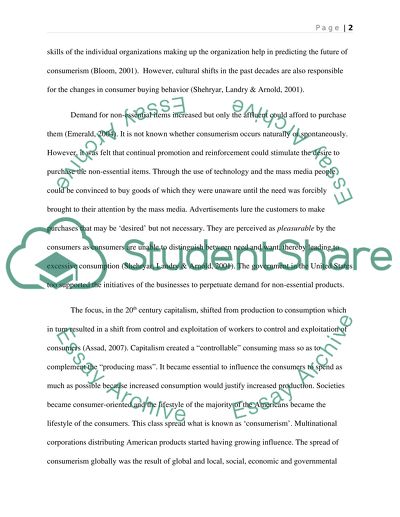Cite this document
(“Why is Consumption and Consumerism Important in a Contemporary Global Essay”, n.d.)
Retrieved from https://studentshare.org/sociology/1431553-why-is-consumption-and-consumerism-important-in-a
Retrieved from https://studentshare.org/sociology/1431553-why-is-consumption-and-consumerism-important-in-a
(Why Is Consumption and Consumerism Important in a Contemporary Global Essay)
https://studentshare.org/sociology/1431553-why-is-consumption-and-consumerism-important-in-a.
https://studentshare.org/sociology/1431553-why-is-consumption-and-consumerism-important-in-a.
“Why Is Consumption and Consumerism Important in a Contemporary Global Essay”, n.d. https://studentshare.org/sociology/1431553-why-is-consumption-and-consumerism-important-in-a.


